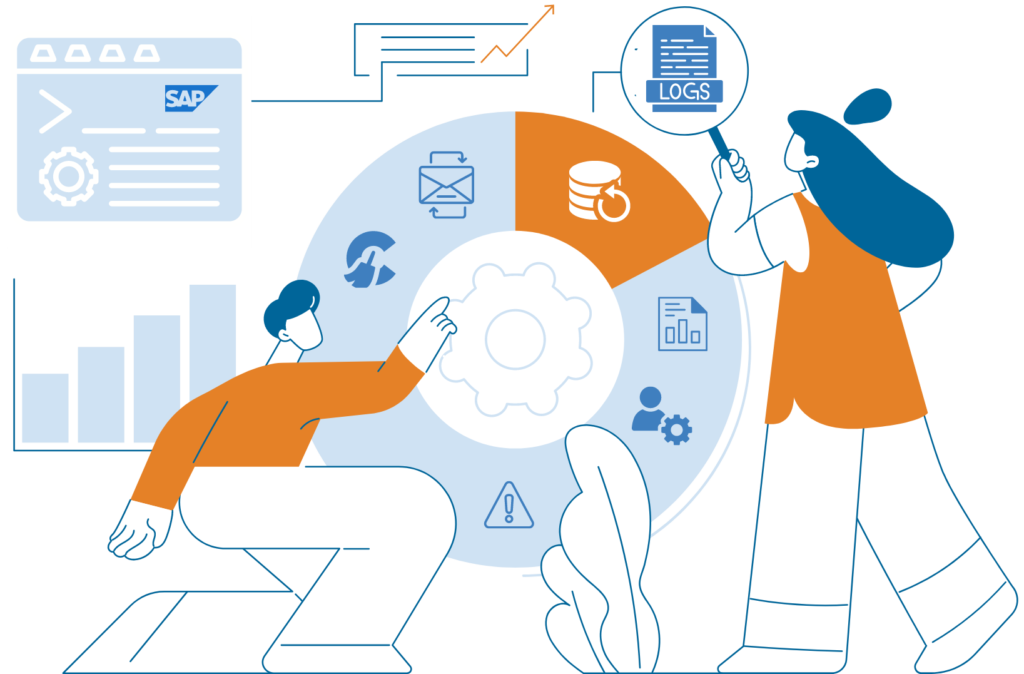In enterprise resource planning (ERP), SAP BASIS plays a critical role in ensuring that the SAP system runs smoothly. BASIS administrators manage the entire SAP environment, ensuring system performance, security, and stability. To do this efficiently, admins rely on a range of powerful tools. Explore the essential SAP BASIS tools that every admin should be familiar with to streamline SAP administration tasks and optimize system performance. Whether enrolled in an SAP BASIS Course or looking to get certified, these tools are key to mastering the SAP landscape.
1. SAP Solution Manager
The SAP Solution Manager is a comprehensive tool for managing the complete lifecycle of SAP applications. It helps BASIS admins in tasks such as system monitoring, change control, and incident management. This tool not only monitors the health of SAP systems but also automates many administrative tasks.
Features:
- System Monitoring: Real-time insights into system performance.
- Change Management: Facilitates a controlled and compliant deployment of updates.
- Incident Management: Helps track and resolve system issues efficiently.
Use Case: A SAP BASIS admin can use Solution Manager to automate the deployment of patches across different environments, ensuring the integrity and performance of the entire SAP landscape.
2. SAP GUI (Graphical User Interface)
The SAP GUI is a front-end tool that allows BASIS administrators to interact with the SAP environment. It provides access to various SAP modules, enabling users to perform tasks like managing user roles, controlling system access, and monitoring system performance.
Features:
- User Management: Easily add, remove, or modify users and their roles.
- System Control: Monitor and control SAP system processes.
- Performance Management: Track system metrics to identify performance bottlenecks.
Use Case: Using SAP GUI, BASIS admins can quickly resolve user access issues, monitor system processes, and identify any abnormal behavior in the system’s performance.
3. Database Management Tools (BRTOOLS)
For a BASIS administrator, efficient database management is essential to maintain system performance. SAP provides BRTOOLS, a set of utilities designed to manage databases efficiently.
Features:
- Backup and Recovery: Schedule backups and perform database recovery.
- Database Monitoring: Monitor database growth, performance, and resource utilization.
- Indexing and Reorganization: Optimize database performance by managing indexes and reorganizing database tables.
Use Case: A BASIS admin can use BRTOOLS to schedule regular backups and proactively monitor database performance, ensuring system uptime and data integrity.
4. Transport Management System (TMS)
The Transport Management System (TMS) is vital for managing the migration of configurations and development objects between different SAP systems (like from development to production). TMS ensures that changes are properly transported without causing issues in the target environment.
Features:
- Controlled Transports: Ensures consistency across SAP environments.
- Version Control: Tracks changes across systems for audit purposes.
- Automated Transport: Schedules transport jobs automatically.
Use Case: Using TMS, SAP BASIS admins can move custom developments from the development environment to the production environment, ensuring smooth implementation without disrupting live processes.
5. SAP EarlyWatch Alert
SAP EarlyWatch Alert is a tool designed to help SAP BASIS admins stay ahead of potential issues. It provides detailed reports and insights into system performance, health, and potential risks.
Features:
- Performance Analysis: Regularly assesses system performance.
- Risk Detection: Identifies potential risks and issues before they impact operations.
- Optimization Recommendations: Suggest improvements for system performance.
Use Case: With EarlyWatch Alert, BASIS admins can identify bottlenecks in system performance and address them before they become critical issues.
6. Workload Monitor (ST03N)
The Workload Monitor (transaction code ST03N) provides valuable insights into system performance and resource consumption. It allows administrators to analyze transaction times, memory usage, and other system metrics.
Features:
- Performance Monitoring: Detailed analysis of system workload and performance.
- Transaction Analysis: Identifies slow-running transactions and their impact on system performance.
Use Case: BASIS admins can use ST03N to monitor heavy system loads and optimize resource usage, improving overall system performance.
7. User Information System (SUIM)
The User Information System (SUIM) is an essential tool for managing user data, roles, and authorizations. It provides a comprehensive overview of all users and their access rights, making it easier to manage security and compliance.
Features:
- User Management: Comprehensive view of user roles and permissions.
- Compliance Monitoring: Ensures that user roles comply with internal security policies.
- Audit Logs: Tracks user activities for auditing purposes.
Use Case: A BASIS admin can use SUIM to conduct regular audits of user permissions and roles, ensuring that security policies are followed across the system. Get SAP BASIS Course.
8. System Log (SM21)
The System Log (transaction code SM21) is a tool used to monitor system events and errors. It logs all critical events, helping administrators troubleshoot and resolve issues quickly.
Features:
- Error Logging: Captures all system errors and events.
- Troubleshooting: Assists in identifying and resolving system issues.
- Event Monitoring: Monitors system activities for unusual behavior.
Use Case: BASIS admins can use SM21 to detect and troubleshoot errors in real time, ensuring quick resolution and minimal system downtime.
Distribution of SAP BASIS Tool Usage
Why Certification is Important?
Mastering these tools is critical for any SAP BASIS admin, and pursuing an SAP BASIS Certification validates this expertise. Certification not only enhances your knowledge but also makes you more marketable in the industry.
Whether you’re starting your SAP journey or aiming for an SAP BASIS Certification, mastering these essential tools will significantly boost your career. With the complexity of SAP systems, having an in-depth understanding of essential tools like Solution Manager, BRTOOLS, and TMS ensures that you can maintain system performance, security, and stability.
Enrolling in an SAP BASIS Course provides the foundational skills needed to excel in SAP administration. By gaining hands-on experience with these tools, you’ll be better equipped to manage SAP systems in real-world scenarios.
Conclusion
SAP BASIS administrators must be well-versed in the tools that keep SAP systems running efficiently. From system monitoring to transport management, each tool plays a vital role in ensuring smooth operation.



